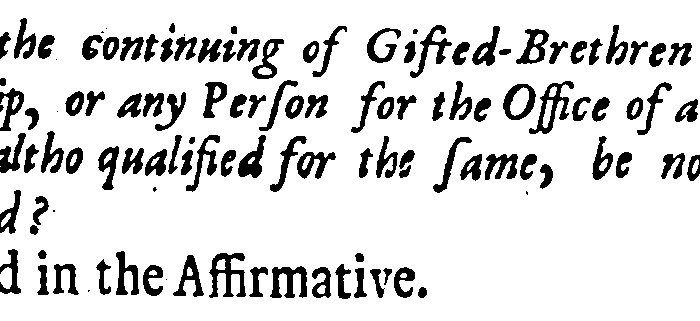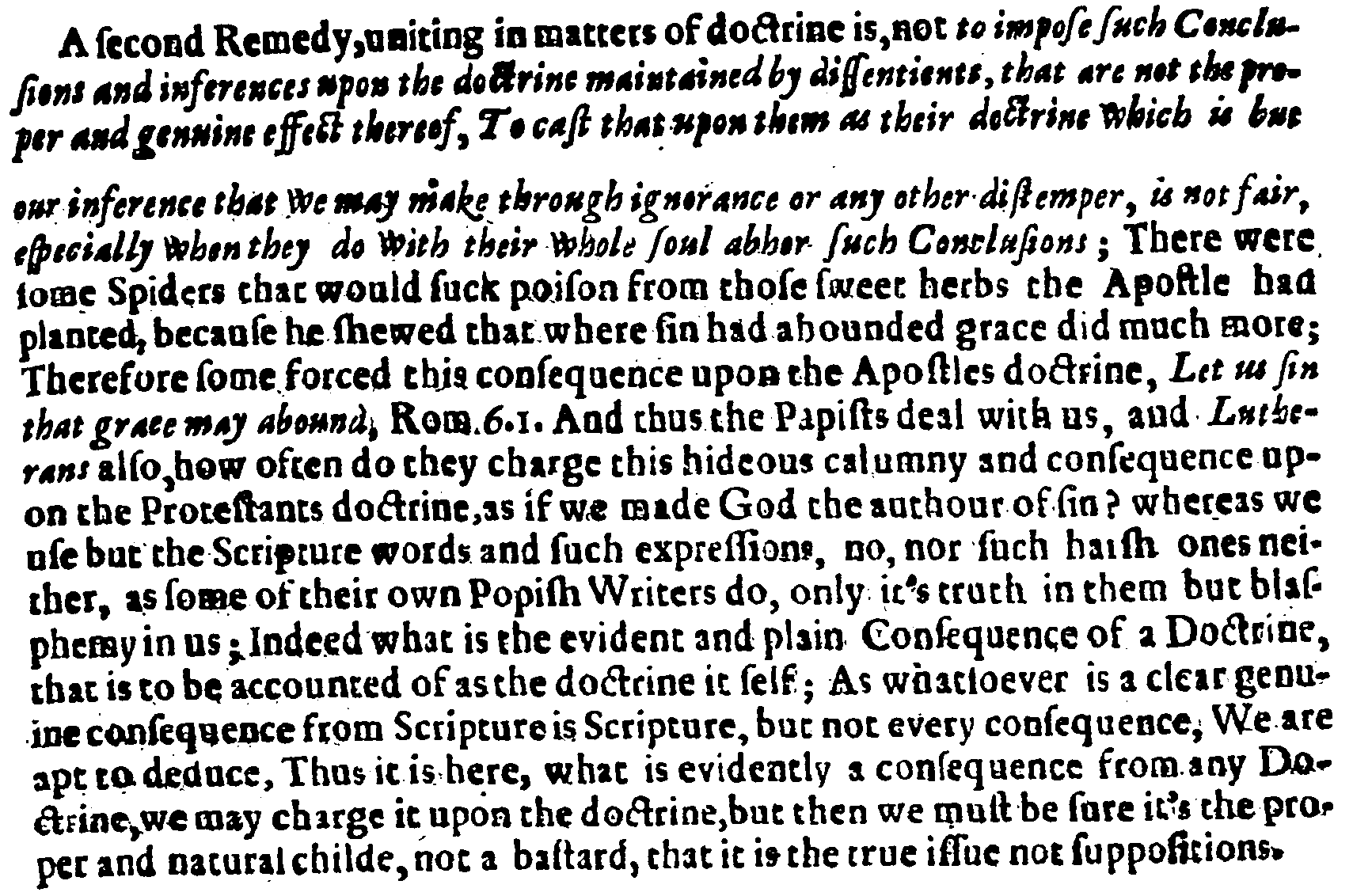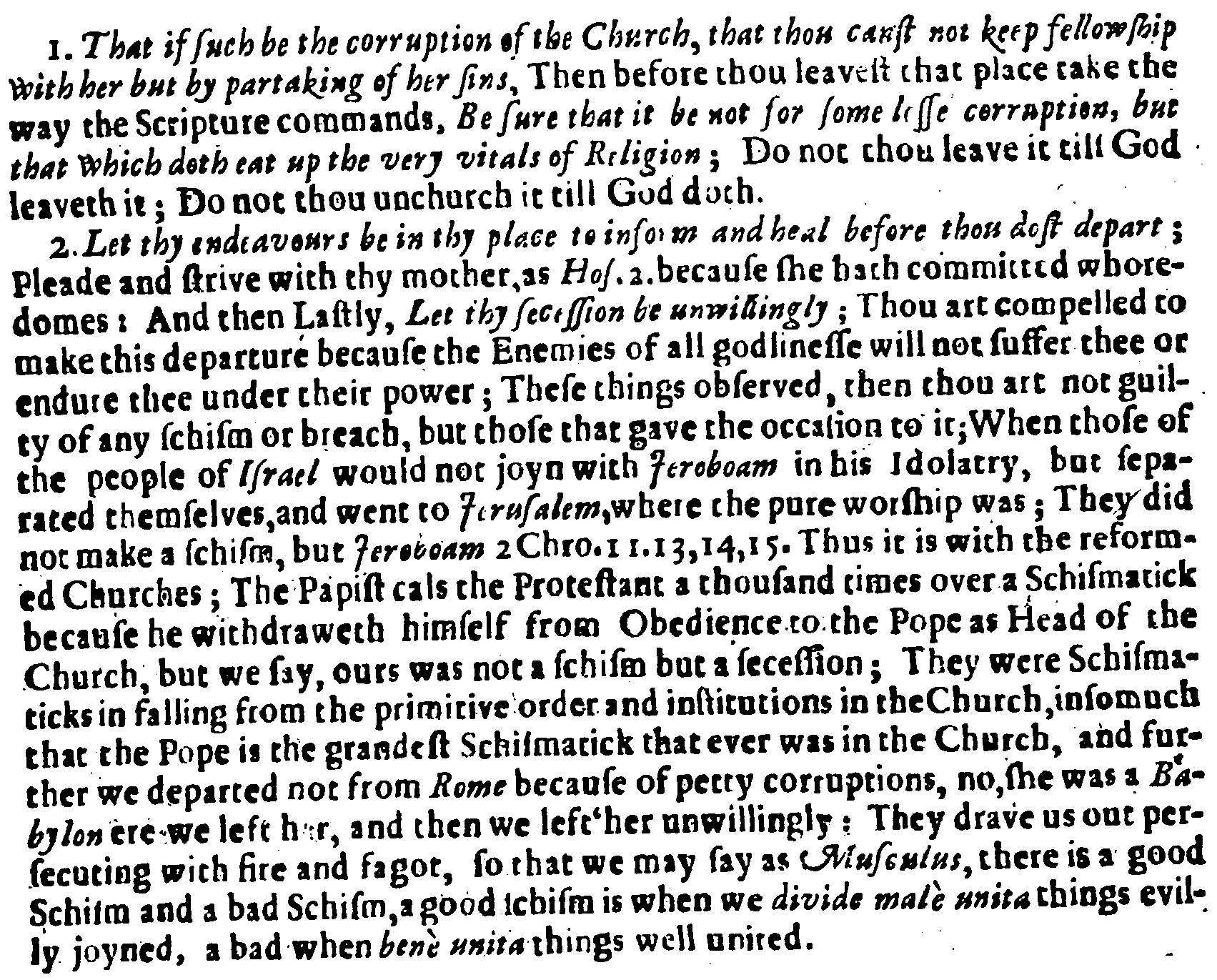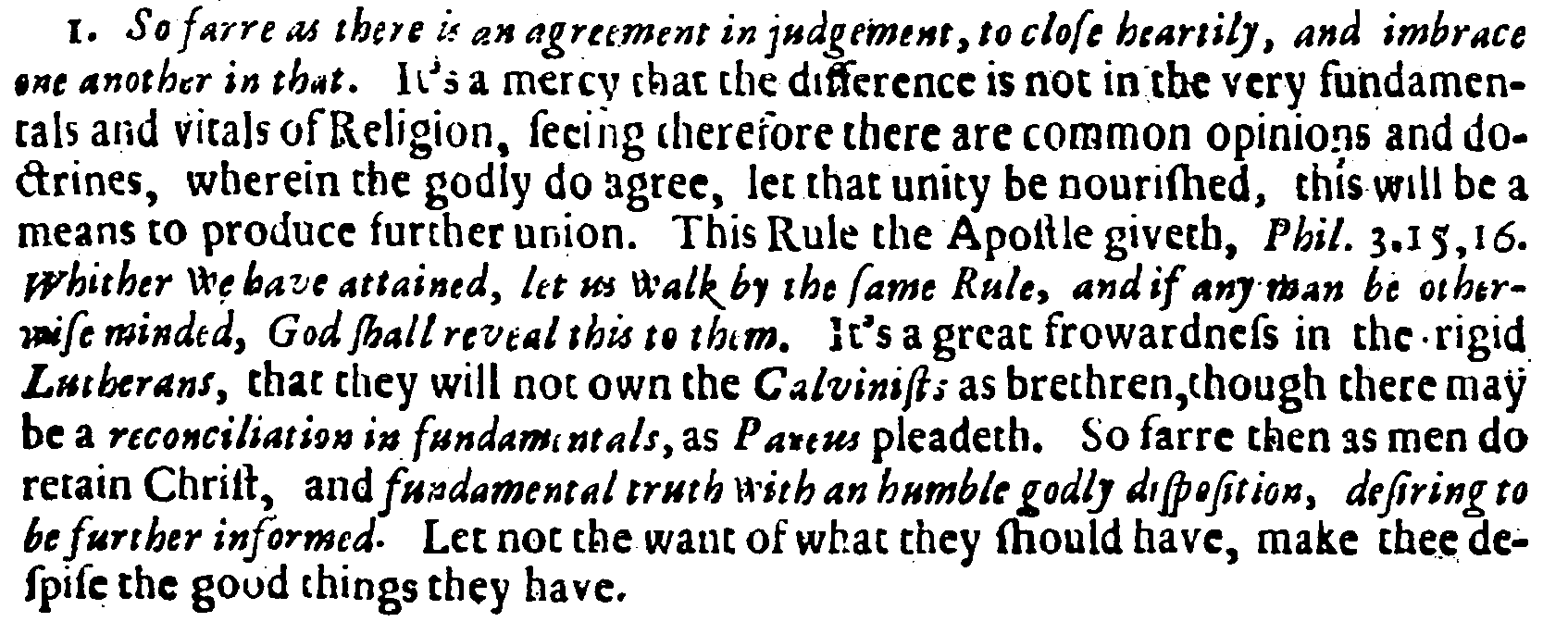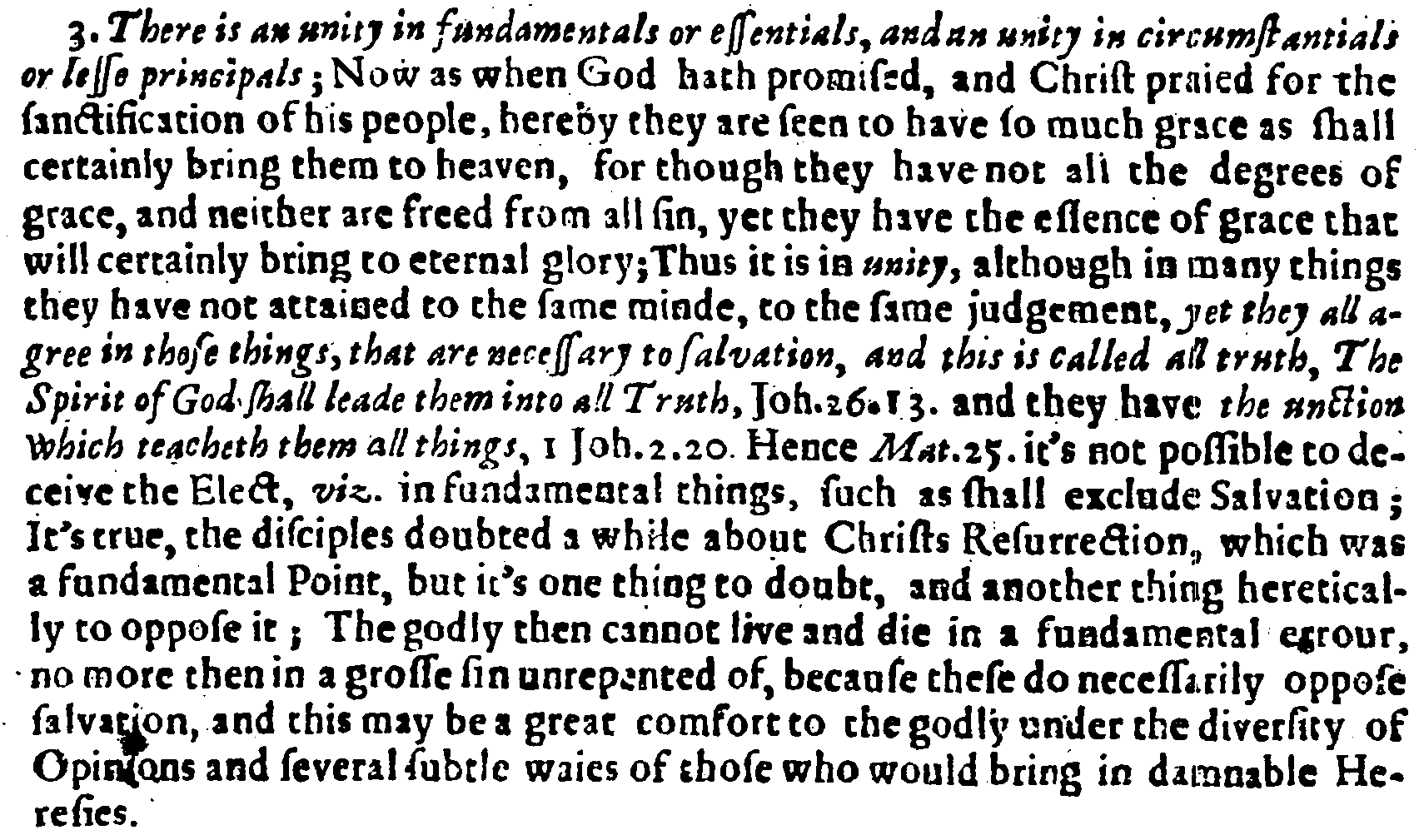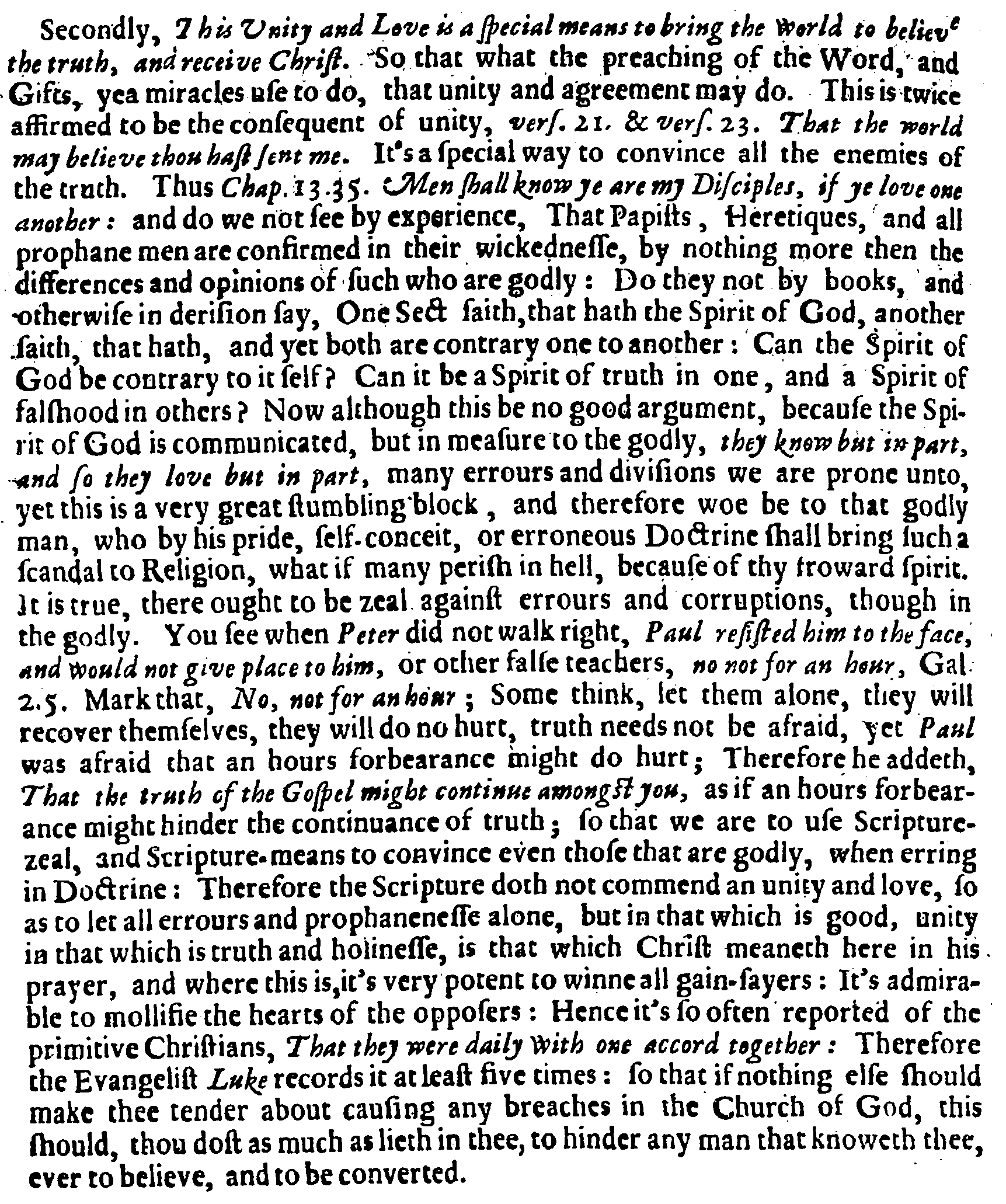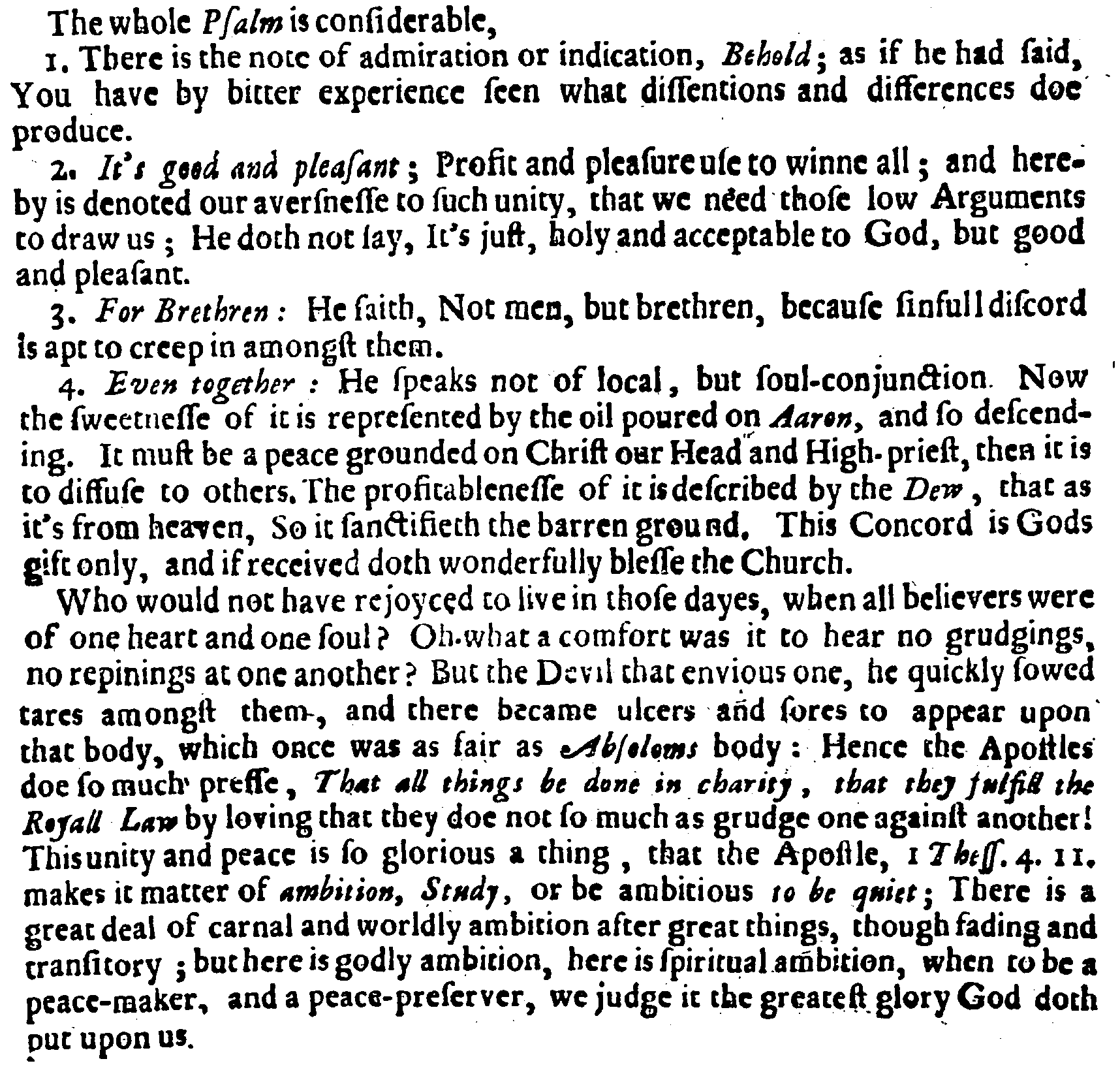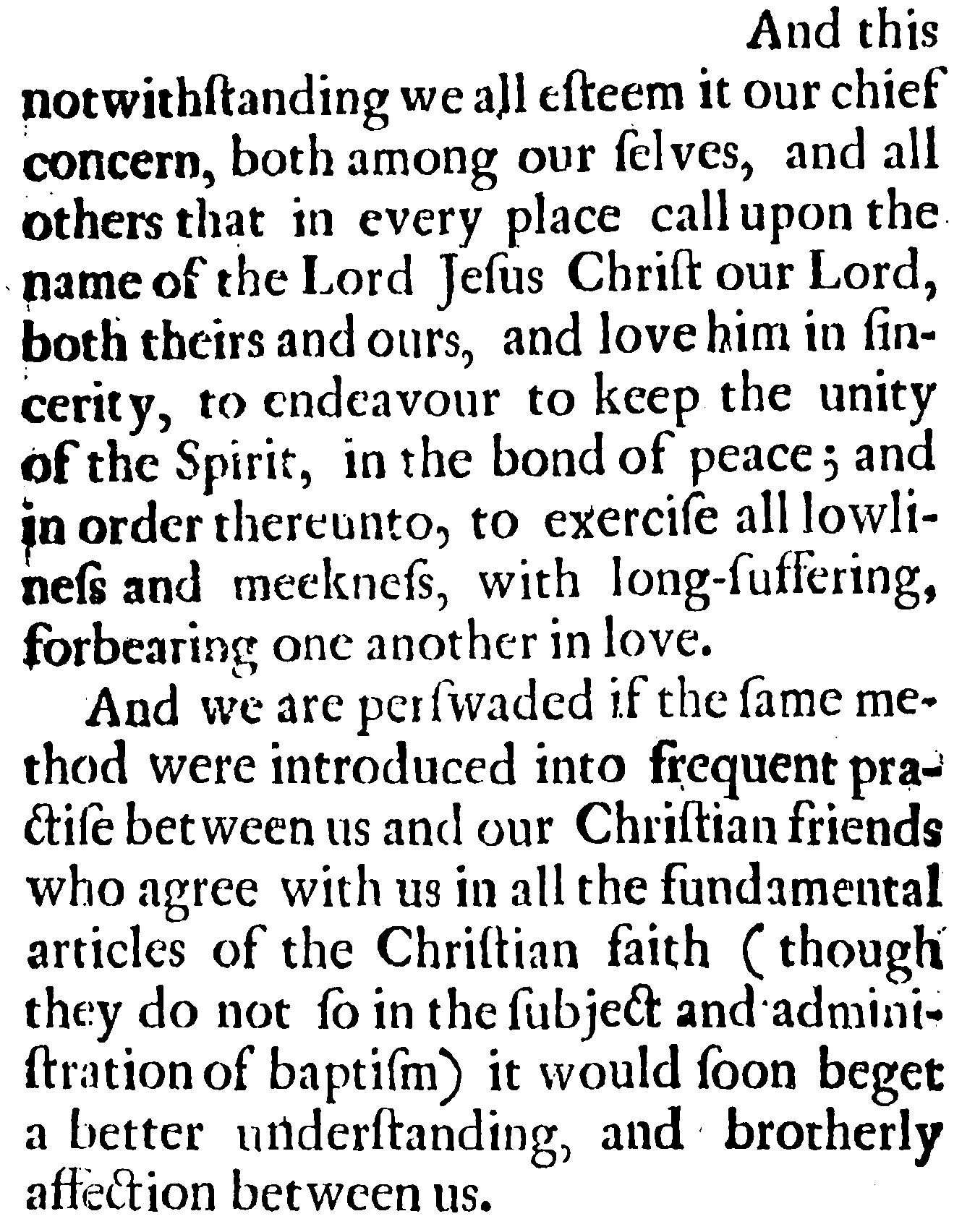2LCF 26.9 states that elders are chosen by “the common suffrage of the church” and ordained by elders. This language is taken directly from the Savoy Declaration’s Platform of Polity. In 2LCF The margin points you to the Greek text of Acts 14:23 to justify this (the Savoy Declaration doesn’t provide textual references).
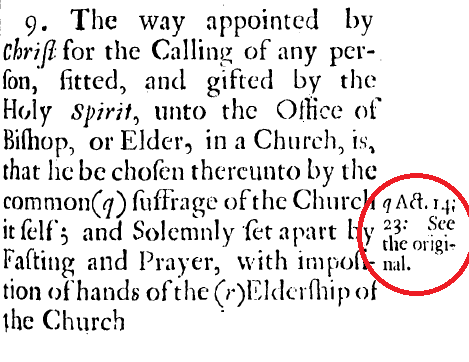
Such “proof texts” in the Confession refer you to the textual tradition of that verse, not the bare text itself. What can we find in commentaries and treatments of this text, especially ones that deal with the Greek word itself?
Charles Marie Du-Veil, a Particular Baptist (formerly Roman Catholic), wrote a commentary on the book of Acts and argued that “χειροτονήσαντες” meant to choose by election.

Nehemiah Coxe, a few years earlier, argued in a sermon on Elders and Deacons (1681) that the Greek of Acts 14:23 means to appoint through suffrage. He appealed to Erasmus and Beza to explain the Greek word, “χειροτονήσαντες.” Here is the marginal note from his published sermon:

Following the note to Theodore Beza, we find in his “Annotationes majores in Novum…Testamentum” that he translates this word in Acts 14:23 as “they appointed by suffrage” and argues “It is based on the Greek word for this practice, where decisions are made by raising of hands.”

Beza’s work had been noticed and used by Baptistic Congregationalists (i.e., early Particular Baptists) at least as far back as the 1650s. In 1656, the Abingdon Association wrote to the church in Petty France about the issue of how elders were to be appointed. Edward Harrison and Samuel Tull, the pastors of the Petty France church, responded and appealed to Beza on Acts 14:23.
[In] Acts 14 Luke informs us that elders were ordained in every church by lifting up of the hand: so in the original: by election: so it is in the old translation: which must imply the action of the church. Wherein we do agree with the paraphrase of Beza, and others, upon the place.

John Owen made the same argument from the Greek text of Acts 14:23 in his “A Brief Instruction in the Worship of God.”

And in his posthumously published “The True Nature of a Gospel Church” Owen took note of Beza, Erasmus, and others to justify the same translation.

Above, Edward Harrison stated that the “old translation” rendered Acts 14:23 in this way. Owen states the same, that “all our old English Translations” did this. They are referring to pre-King James translations, namely the “Great Bible” authorized by Henry VIII and published in 1539 and the “Geneva Bible” first published in 1560.
The Great Bible rendered Acts 14:23,
And whan they had ordened them elders by eleccyon in euery congregacyon, and had prayde and fasted, they commended them to the Lorde on whom they beleued.
[And when they had ordained them elders by election in every congregation, and had prayed and fasted, they commended them to the Lord on whom they believed.]
The Geneva Bible was published with annotations in its margin. Here is a 1610 version of such a Bible, with its annotation for Acts 14:23.

The text of the annotation reads:
Acts 14:23 The Apostles committed the Churches which they had planted, to proper and peculiar Pastors, which they made not rashly, but with prayers and fastings going before: neither did they thrust them upon Churches through bribery or lordly superiority, but chose and placed them by the voice of the congregation.
When the new version, the “King James Bible” was published, it changed the translation of Acts 14:23. Here is a 1638 edition,

[And when they had ordained them elders in every church, and had prayed with fasting, they commended them to the Lord, on whom they believed.]
Note the deletion of “by election” in comparison to the Geneva Bible and the Great Bible.
In the 1640s the Westminster Assembly published an edition of this Bible, with annotations much like the Geneva Bible had done. On Acts 14:23, the Westminster Assembly’s Annotations noted that “χειροτονήσαντες” could be interpreted as suffrage and consent, but agreed with the more modern (King James) rendering.

We can draw several conclusions from these evidences.
First, it is a helpful reminder not to treat “Proof Texts” in the Confession as merely pointing you to the text of Scripture. 2LCF 26.9 tells you to look at the Greek text. You are being pointed to resources dealing with the Greek text, that is, commentaries, translations, and other related literature. The “proof text” is asking you to consider, “What does the Greek of this text say?”
Second, we find that the Baptistic Congregationalists’ theology was developed in conversation with the literature of their time, and the literature that preceded them. They weighed, measured, and considered the text with the literature of others in mind. They were taught, persuaded, and instructed by a tradition much larger than their own particular slice of it. They didn’t loot and leave that tradition. They saw themselves living within it. When we see writers like Harrison and Coxe drawing from the Protestant and Reformed tradition, it reinforces the fact that we should read 2LCF as a particular version of a larger heritage (as if the fact that so much of 2LCF was taken from WCF and SD wasn’t enough to prove the point already).
Third, related to the previous point, we see here another evidence of Matt Bingham’s thesis that those whom we ordinarily call “Particular Baptists” are best known as “Baptistic Congregationalists.” They did not arise in a vacuum. What distinguishes John Owen from Edward Harrison or Nehemiah Coxe on this issue? Nothing. What distinguishes the Savoy Declaration and 2LCF on this issue? Nothing. They share congregationalism. But Harrison, Coxe, and 2LCF represent the Baptistic wing of Congregationalism.
Fourth, similar to the previous points, we find that 2LCF 26.9 isn’t “Baptist” at all. (Apostrophe: To be honest, very little of 2LCF is “Baptist” except a very short chapter on Baptism.) The view that elders are to be appointed by elders, with the suffrage of the church, was the standard translation of the text of the Bible in English as far back as 1539, and it had a heritage in scholastic literature. All this was well established long before the Baptistic Congregationalists arose in the 1630s-1640s.
Fifthly, and lastly, when we realize that there was a tradition of interpreting Acts 14:23 as appointment by election, then we realize that the phrase “common suffrage” in 2LCF 26.9 is, in effect, an attempt to embed the words of Scripture in the Confession itself. It is, so to speak, Beza’s rendition of Acts 14:23, “per suffragia creassent”, in English.
This was originally going to be a Twitter thread, but the rabbit hole went pretty deep and I thought it best to put this in a blog post. I hope you find it useful.

As a somewhat unrelated extra, Patrick Fairbairn weighed in on the translation of this text in his “Hermeneutical Manual”, again taking note of Erasmus and Beza.

In further reading, William Bucanus offered the same interpretation of Acts 14:23 in his A Body of Divinity.
They [ministers] ought to be approved of the chief men, which do excell other both in piety and in dignity in the church, as of the magistrate, if he be godly, Christian, or an allower of the Christian Religion: yet not excluding the consent of the people, but given them power, if they have any reason to dissent, to declare the causes of their lawfull refusal, so that none be admitted to Ecclesiastical Functions without the privity, open notice given, and the acceptance of the whole Church: So Paul and Barnabas are said to have appointed Elders in the Churches, not according to their own private pleasures, but by advisement of the people, first by wholesome counsel, and yet the people declaring their voices or consent by holding up of their hands. And then they had ordained them Elders by voices (or holding up of hands) in the Church, said Luke, Acts 14:23.
Referring to a congregation’s “power, privileges, and liberty to choose their officers,” John Cotton, in his The Keyes of the Kingdom said,
The like, or greater liberty is generally approved by the best of our Divines (studious of Reformation) from Acts 14:23. They ordained them Elders, chosen by lifting up of hands.
